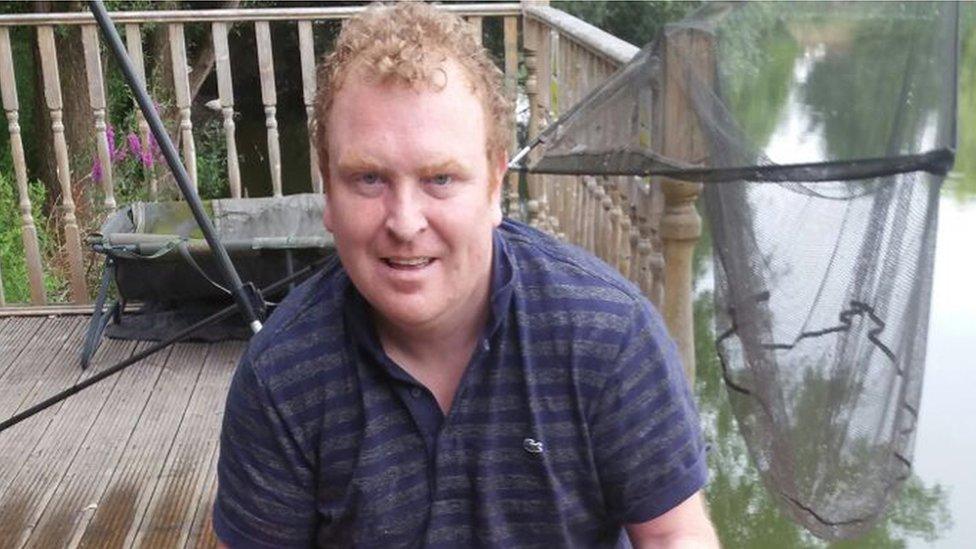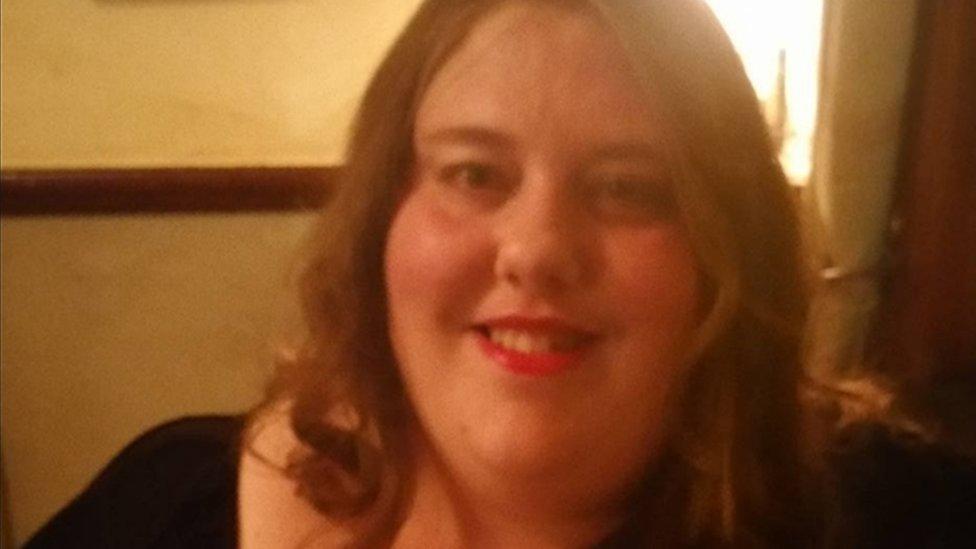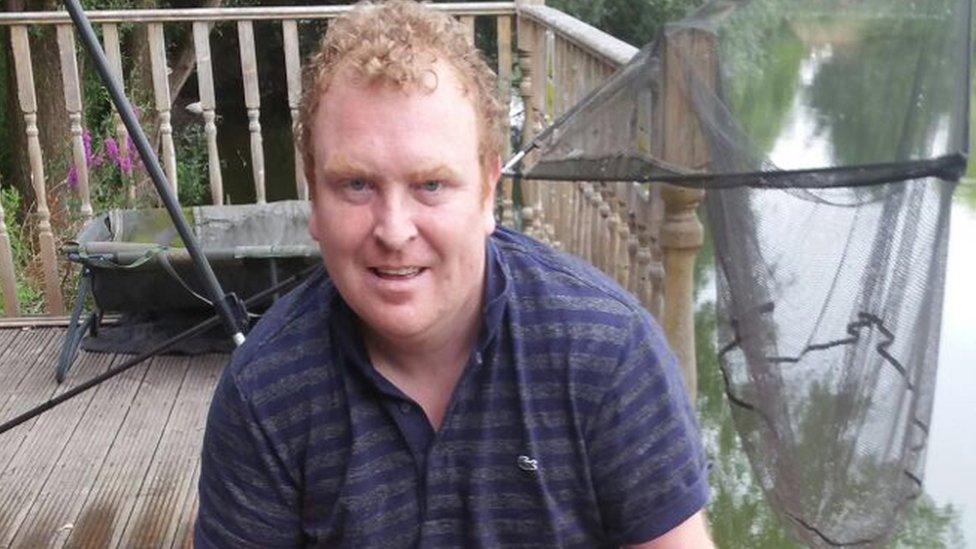Suzanne Brown killing: Essex Police cleared of wrongdoing
- Published

Jake Neate was given an indefinite hospital order earlier this year
A police force that took nearly three hours to respond to a 999 call in the case of a man who stabbed his partner 173 times has been cleared of wrongdoing by the watchdog.
Jake Neate killed Suzanne Brown, 34, his partner of more than 10 years, at their home in Braintree in 2017.
The police response was delayed because the call was wrongly categorised by the initial handler, an IOPC report into the actions of Essex Police found.
The force said it had nothing to add.
Mr Neate's parents had contacted Essex Police from Spain to express concerns about the couple's safety but it was only after a second call that officers attended the scene to find Ms Brown dead.
'Weak outcome'
Mr Neate, 37, who had schizophrenia, was found unfit to stand trial but a trial of the facts found he was responsible for killing Ms Brown, in December 2017. He had been taken off an anti-psychotic drug two months before the killing, Chelmsford Crown Court heard.
He was given an indefinite hospital order earlier this year.
The Independent Office for Police Conduct found call-handlers had no case to answer for misconduct and there was no evidence any delay was caused by negligence.
However, it was found that the performance of two members of staff operating in the control room "had not met expected standards".

Suzanne Brown and Jake Neate had been together for more than 10 years
IOPC regional director Sarah Green said: "Our investigation found the initial call to the force control room had not been categorised correctly as a domestic incident.
"This meant associated processes, including risk questions being asked that may have aided the response, were not triggered."
An inquest into Ms Brown's death is due to take place in March. Mr Neate's family said they were "disappointed" by the IOPC's findings but could not speak about them until then.
Deborah Coles, director of charity Inquest, said: "It is difficult to reconcile the weak outcome of this investigation given the complacent response to a series of emergency calls."

- Published28 January 2019

- Published18 January 2019

- Published16 January 2019

- Published15 January 2019

- Published14 January 2019

- Published18 December 2017
